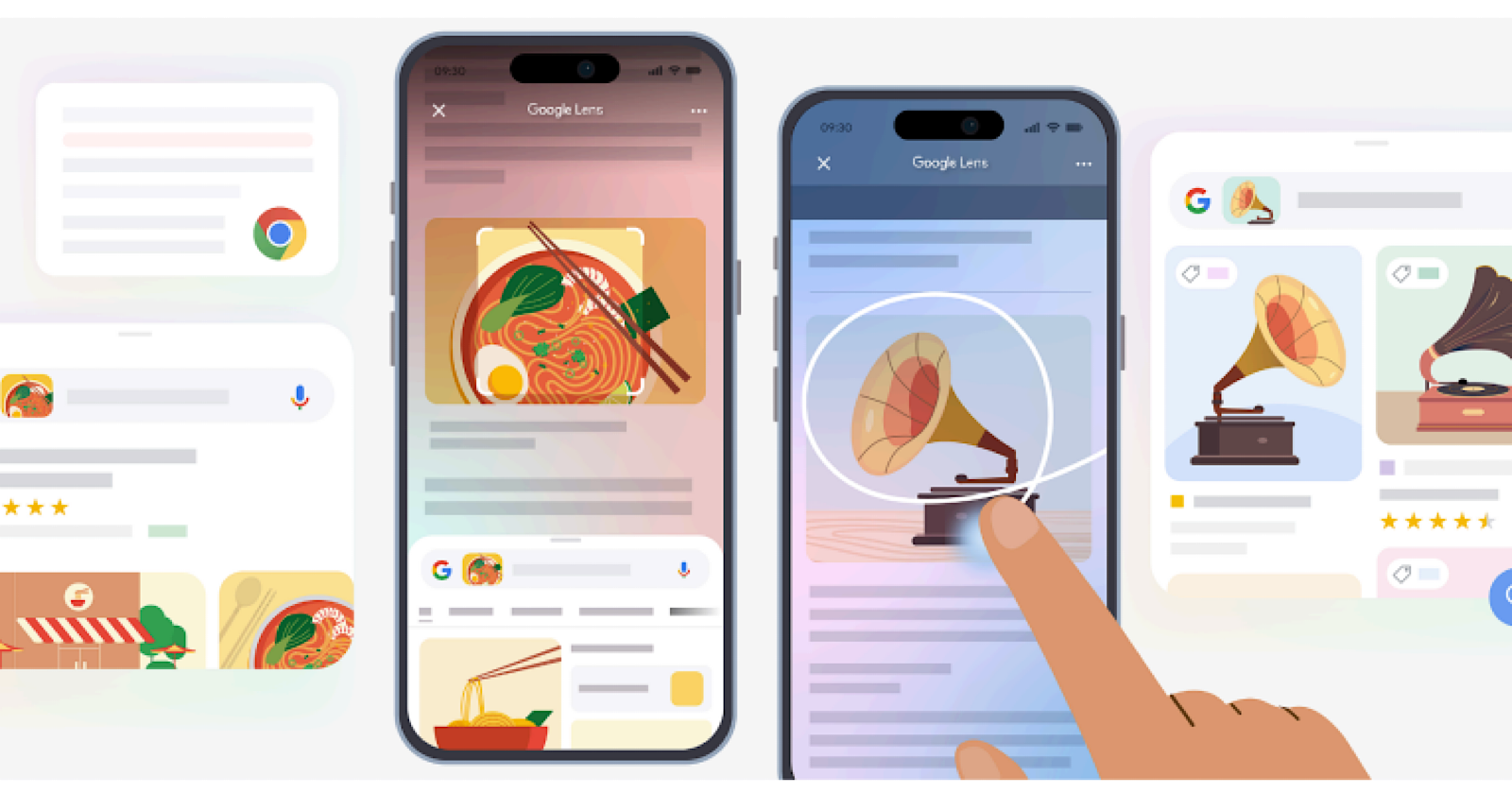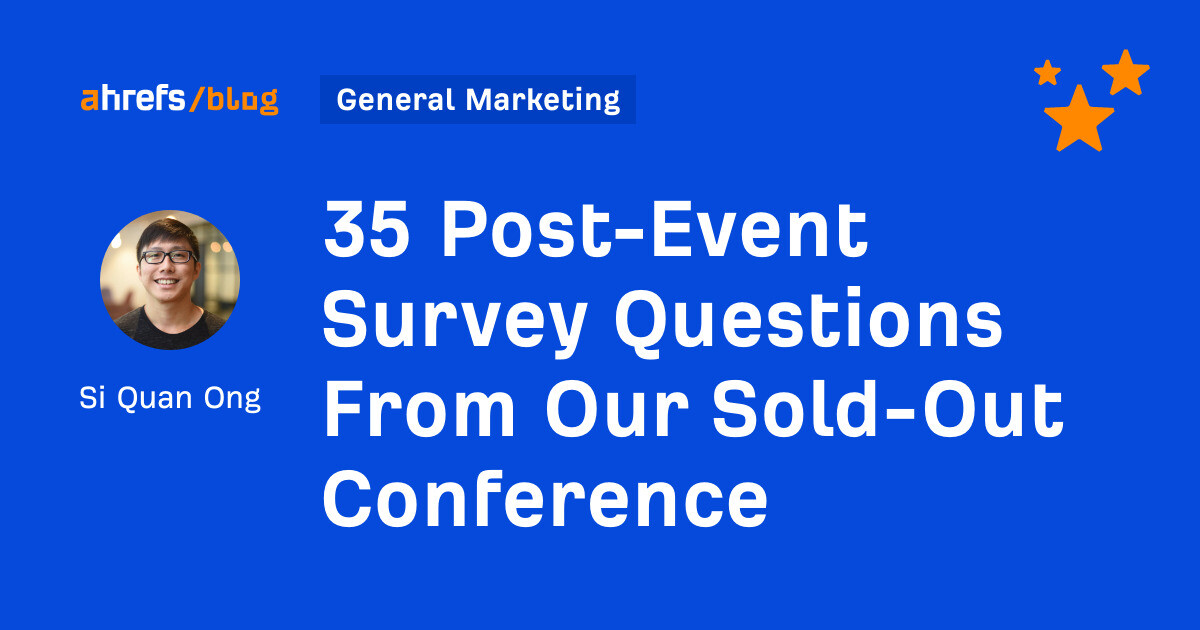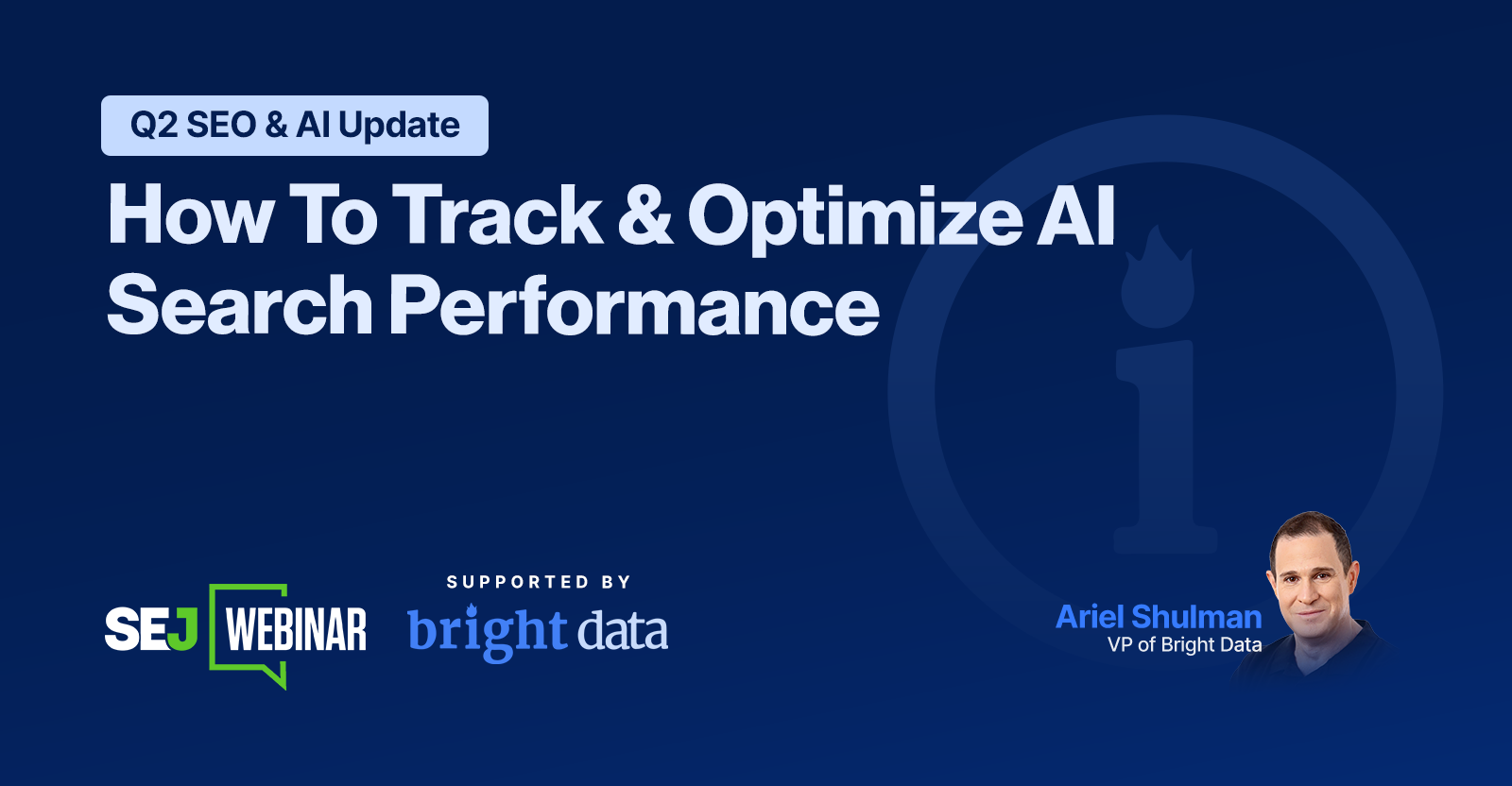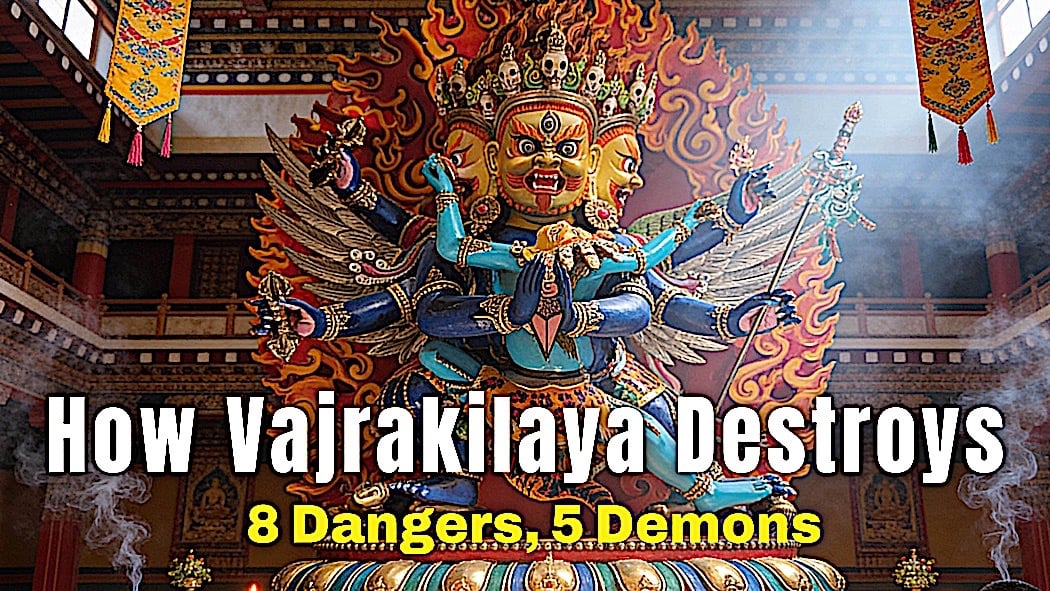AI-Generated Content Does Not Hurt Your Google Rankings (600,000 Pages Analyzed)
If you think about it, there is no clearer signal than the fact that Google has rapidly rolled out AI Overviews (and now AI mode), both of which are basically AI-generated content. Yet there are still many SEOs and...
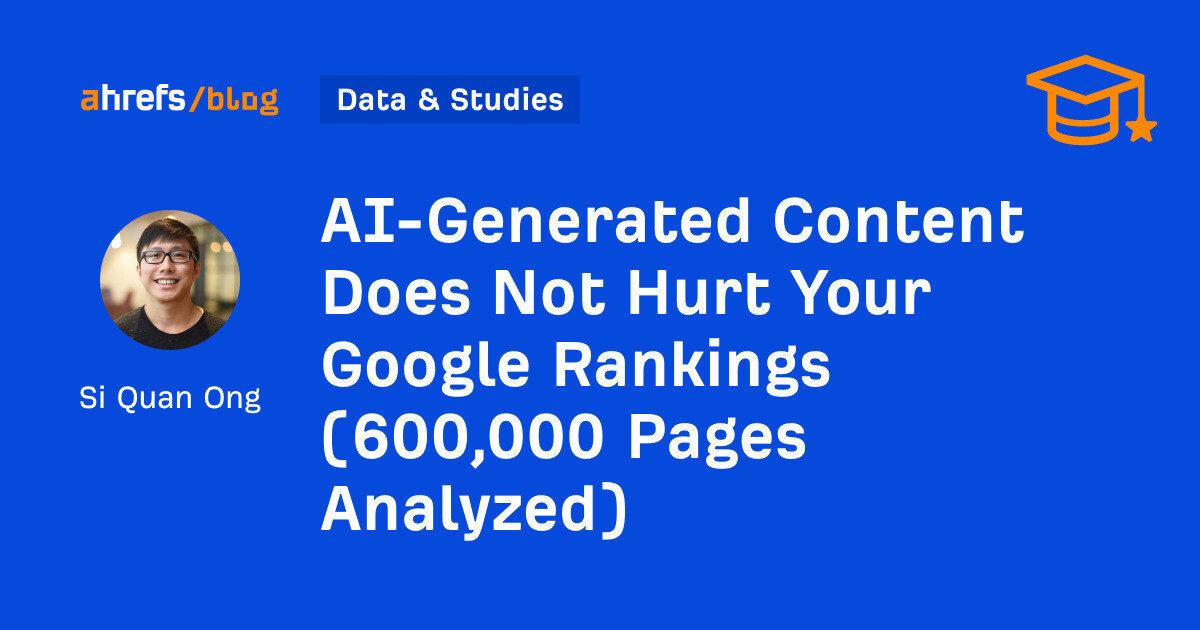
In 2023, Google published a blog post stating that they’re not against AI content: If you think about it, there is no clearer signal than the fact that Google has rapidly rolled out AI Overviews (and now AI mode), both of which are basically AI-generated content. Yet there are still many SEOs and digital marketers who think that Google seeks to actively punish AI content. Post on Reddit We decided to find out the real answer by looking at 600,000 webpages to understand if Google punishes, rewards, or is simply indifferent to AI content. Here’s what we found: We took 100,000 random keywords from Ahrefs Keywords Explorer and extracted the top 20 ranking URLs. We then extracted the content from these URLs, of which we had 600K in our database. We ran each article through our own AI content detector, which is part of Page Inspect in Site Explorer. Here’s what our AI content detector found: Of the ones that were a mix of both human and AI: According to our AI detector, Human-written content only made up 13.5% of the top 20 ranking pages. This means 86.5% of top-ranking pages contain some amount of AI-generated content. That is to be expected because AI has more use than just simply generating content. You can use it to spell check, improve your grammar, refine your writing, optimize your titles, challenge your ideas, and more. Heck, even this Google Doc I’m writing in has built-in AI. So, if Google wanted to actively penalize AI content, you wouldn’t expect these kinds of results. If you think about it, the fact that there is pure AI content (even though rare, only 4.6%) in the top-ranking pages already suggests that Google doesn’t punish AI content. We can kind of expect this to be honest. In our State of AI in Content Marketing report, where we surveyed 879 marketers, 87% of respondents use AI to help create content. Just as there’s no longer any manufactured steel untouched by nuclear fallout, soon there won’t be any piece of content that isn’t ‘tainted’, or assisted, by AI. We calculated the correlation between AI content percentage and search ranking position across our entire dataset. The correlation was 0.011, effectively zero. In case this is your first time seeing a box plot, here’s how you should read them: There is no clear relationship between how much AI-generated content a page has and how highly it ranks on Google. This suggests that Google neither significantly rewards nor penalizes pages just because they use AI. If you’re looking for a silver lining somewhere, you’d be happy to know that the very highest-ranking pages, i.e. #1, tend to have slightly less AI-generated content. In fact, if we group them into three groups of minimal AI use (0-30%), some AI use (30-70%), and substantial AI use (70-100%), you’d also be happy to know that the group with minimal AI use correlates very slightly with higher rankings. This suggests a minor preference for more human-created or lightly AI-assisted content at the very top of the SERPs. But bear in mind that the correlation is very weak. From our research, it seems that Google neither actively punishes nor rewards AI content. So, you don’t have to be afraid and avoid AI content at all costs. Ultimately, Google probably doesn’t care how you made the content. It simply cares whether searchers find it helpful. If you can make pure AI content that’s unique, helpful, and searchers will want to consume, then I don’t see why not. But from my experience, and from the data, we can see that it’s difficult to make truly high-quality content from AI alone. That’s likely why most content creators are leveraging AI as a tool to assist in making content, rather than simply generating them.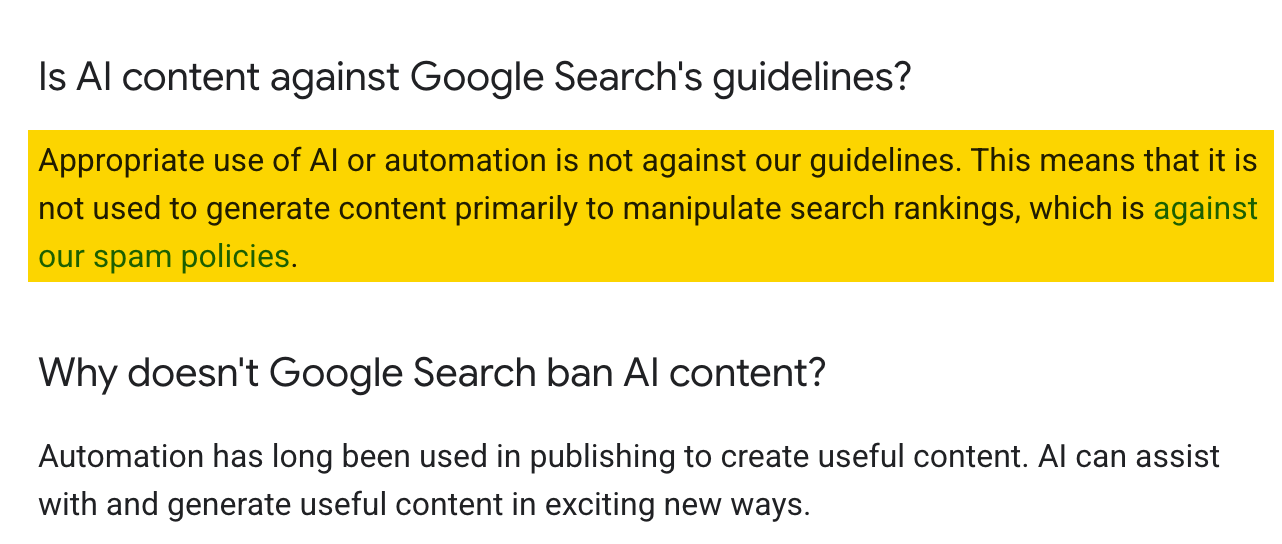
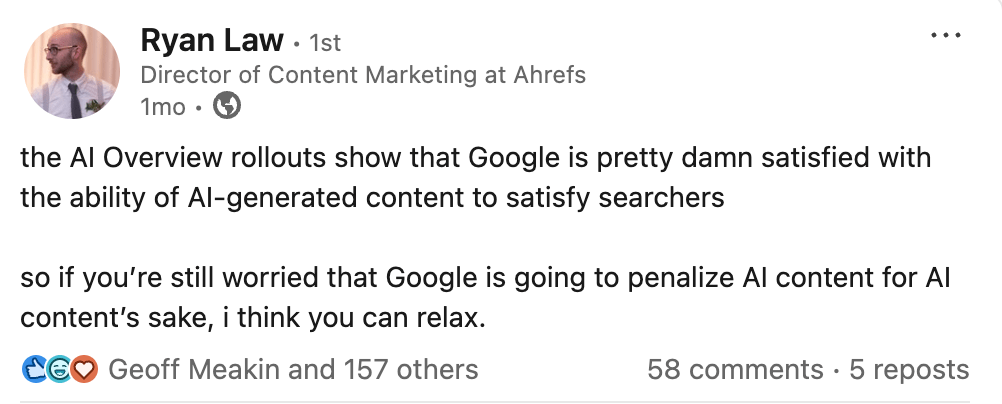
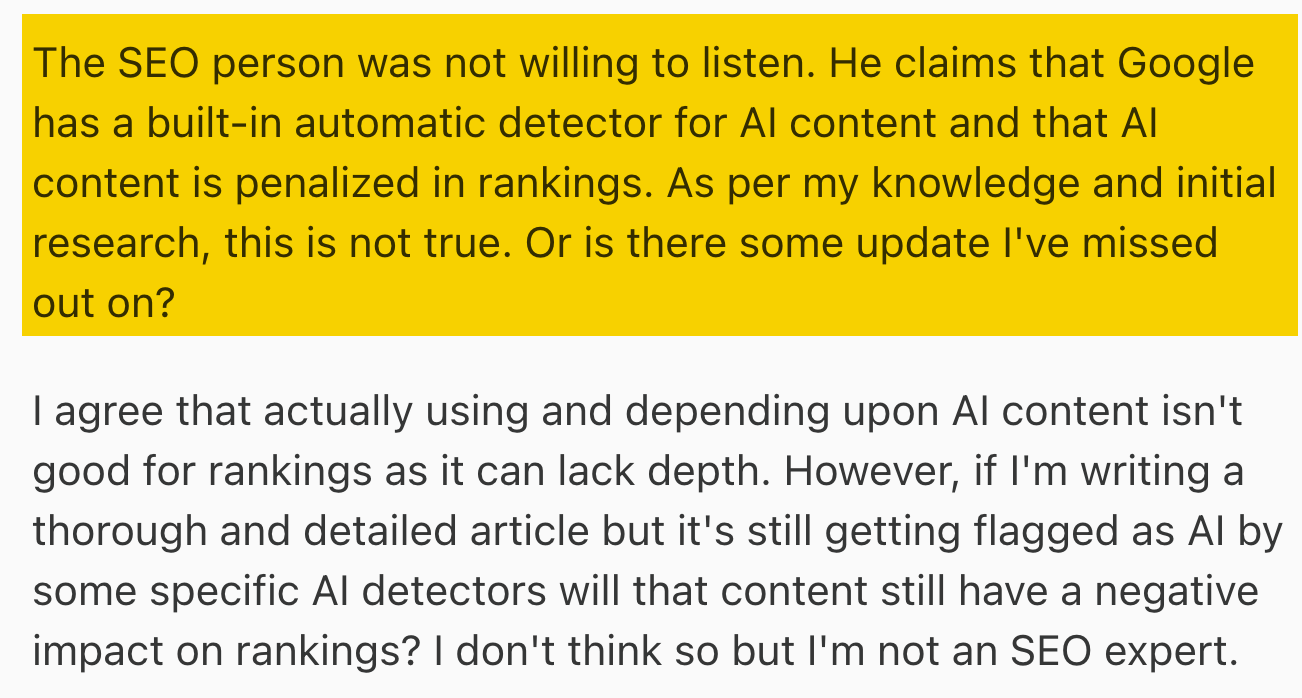
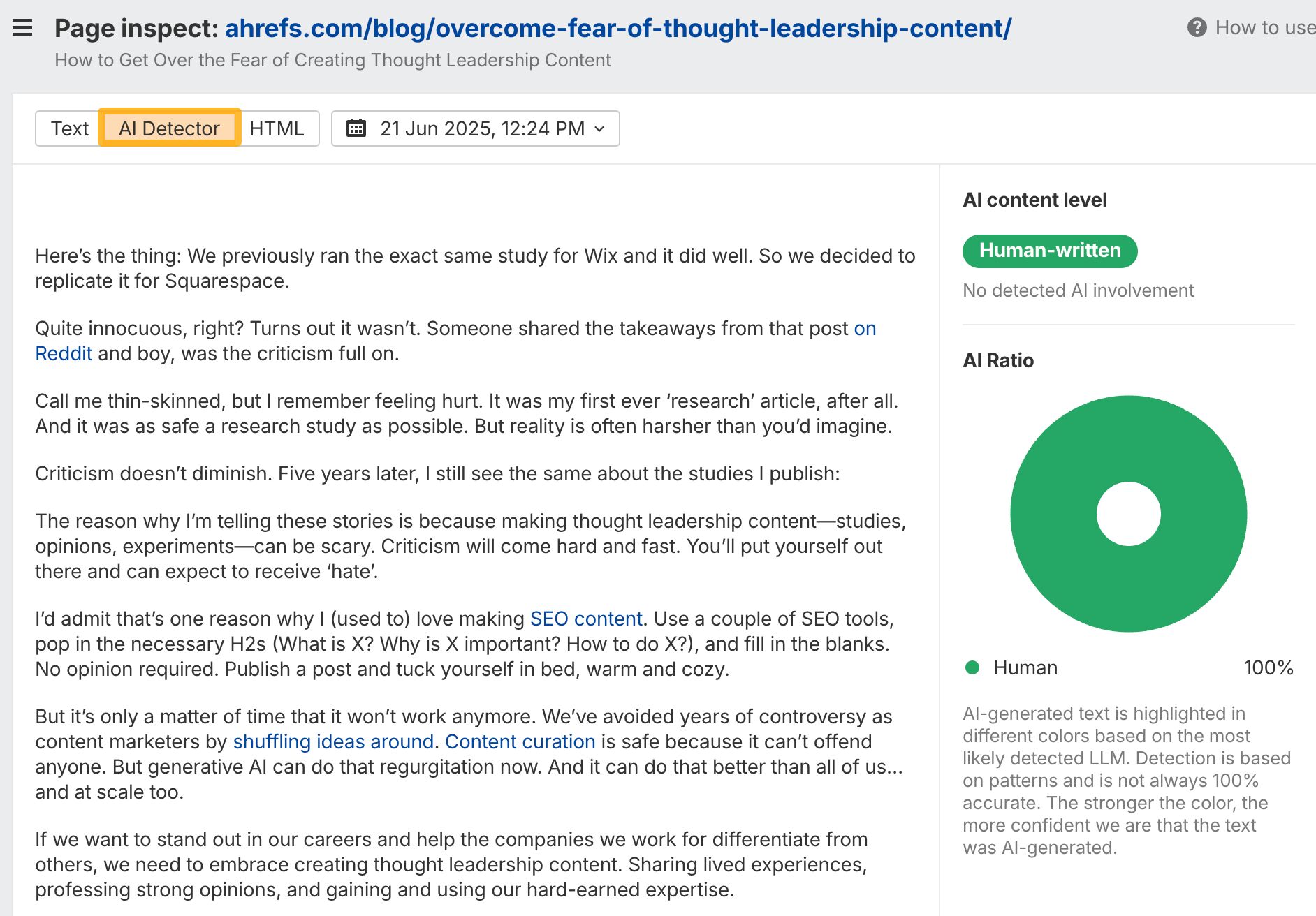
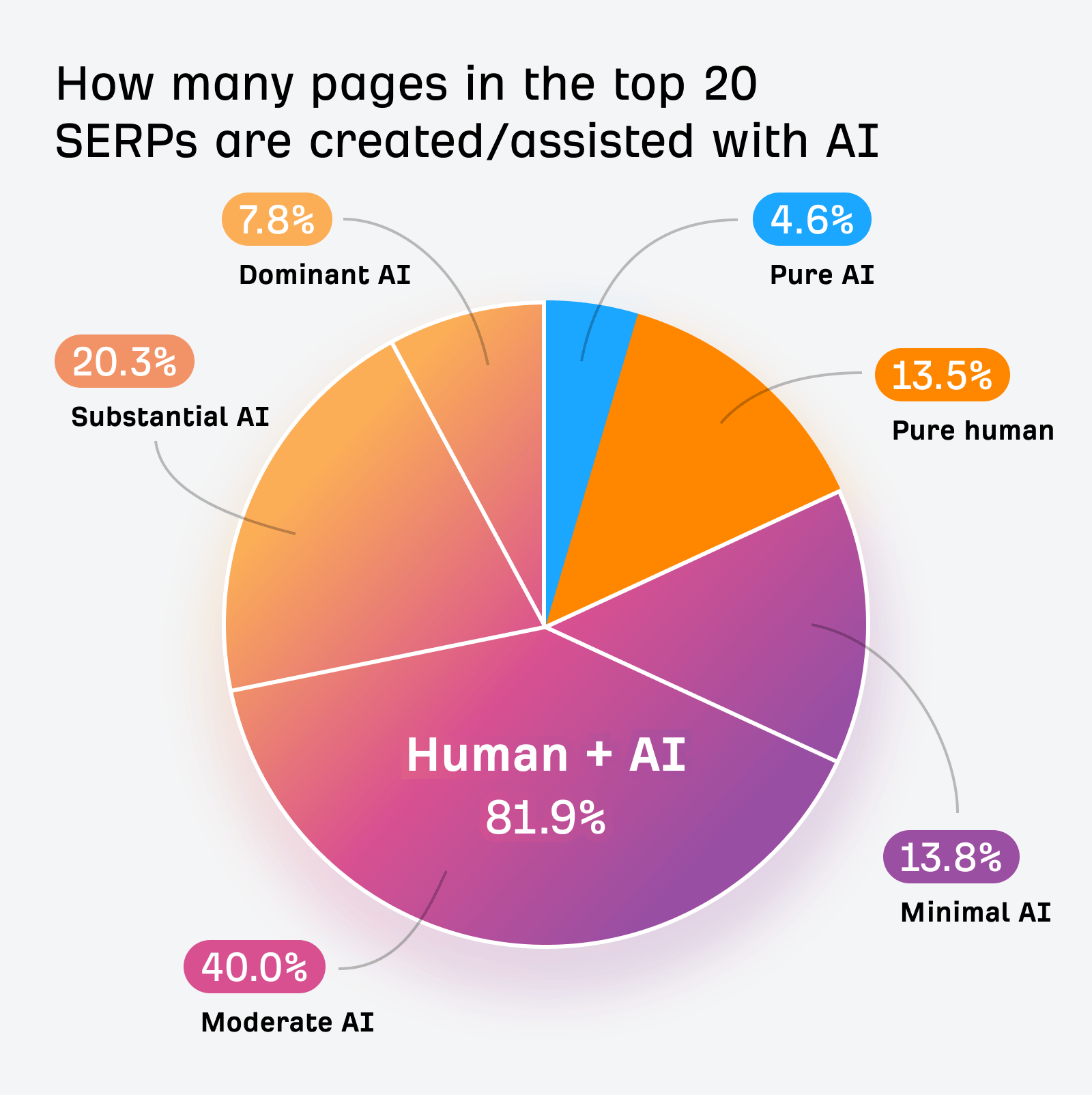
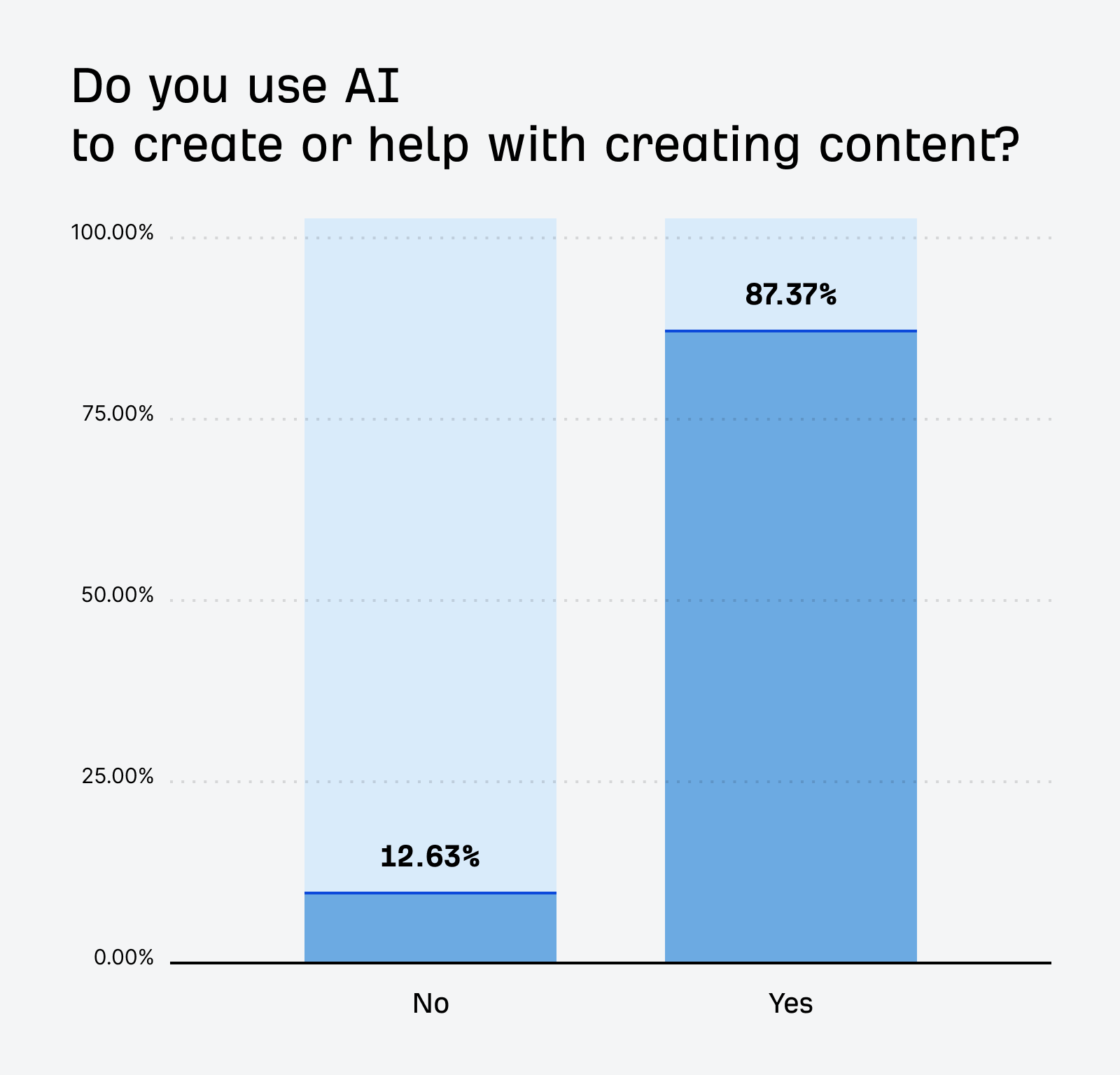
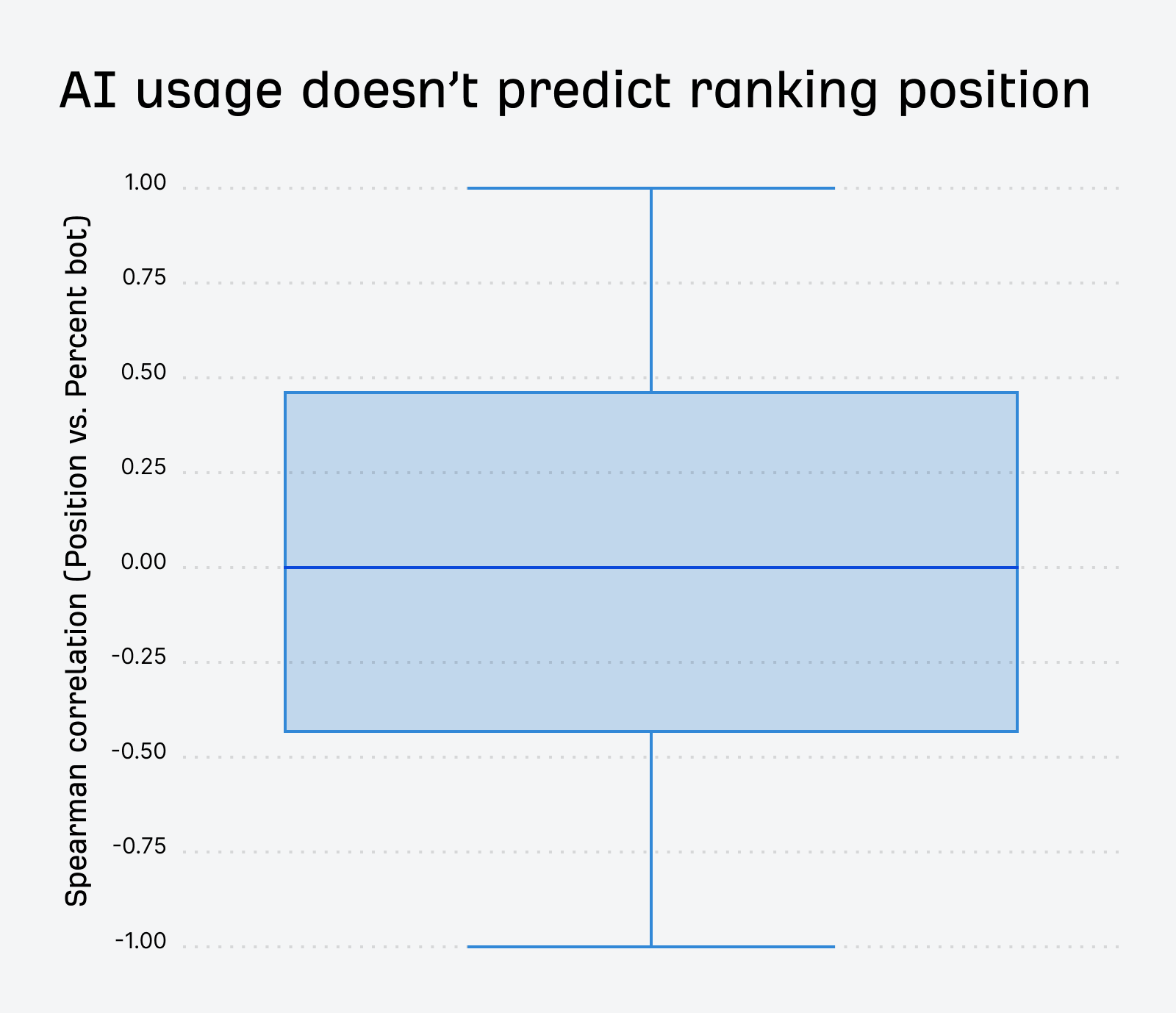
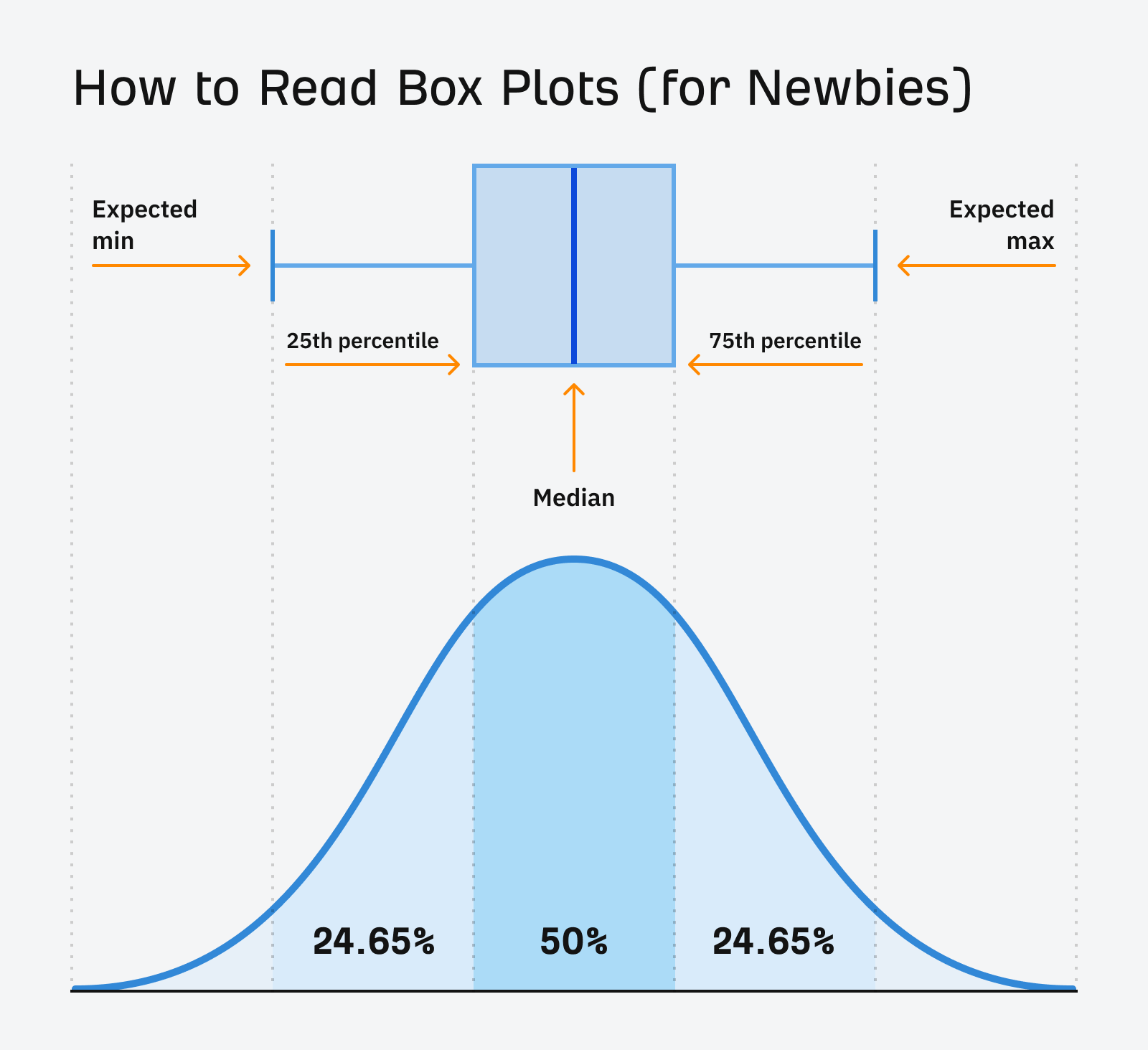
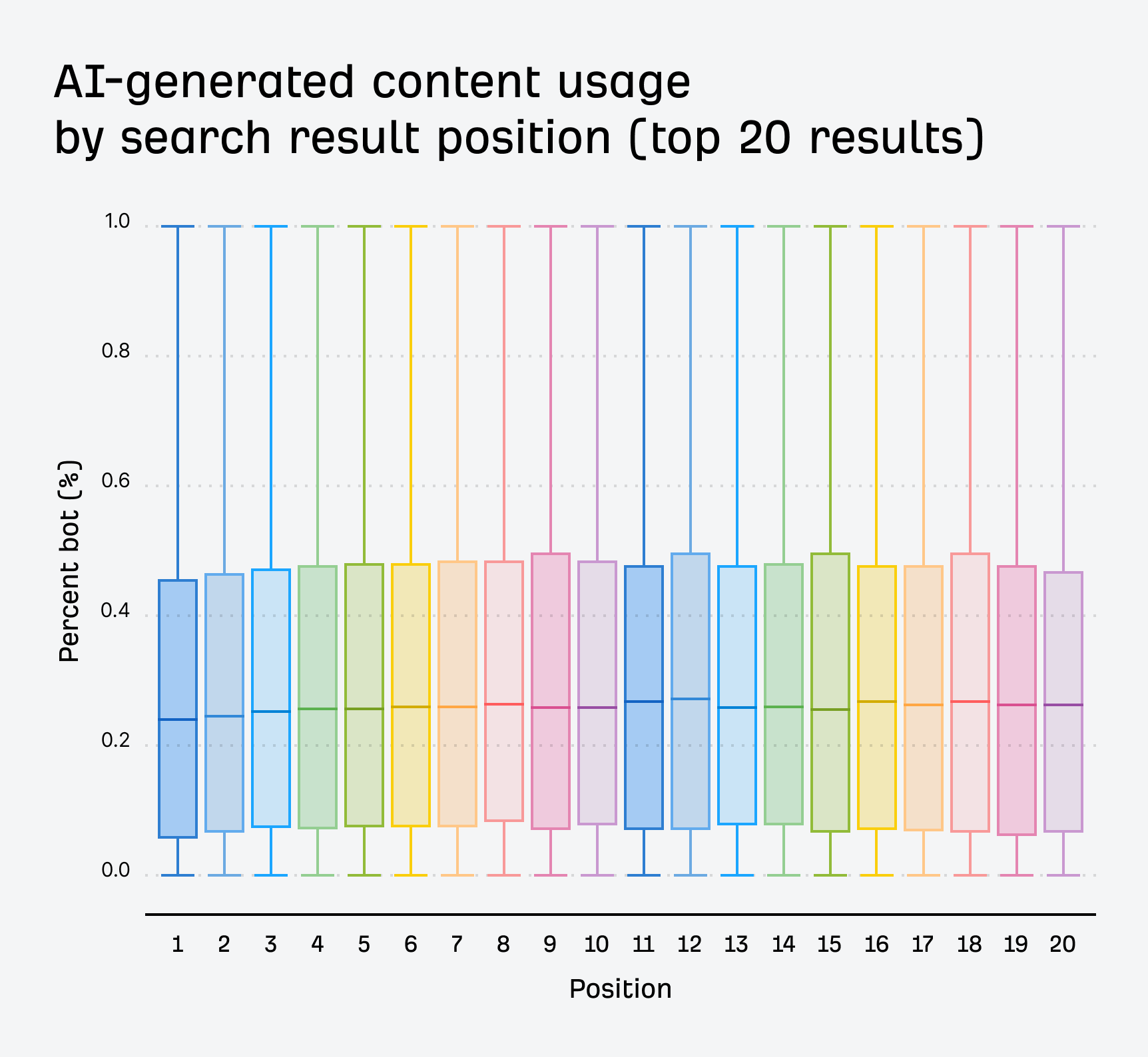
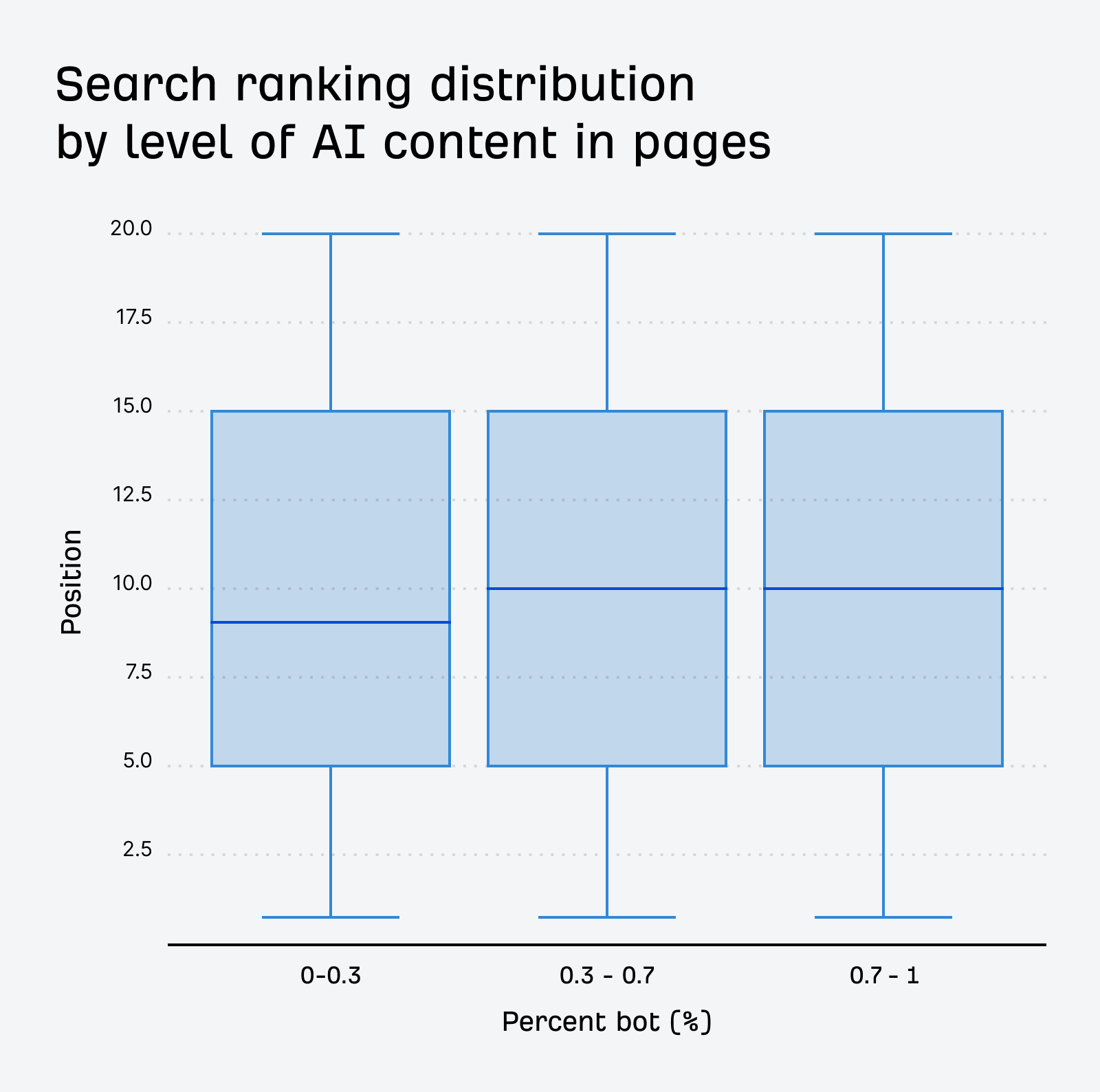
Wrapping up
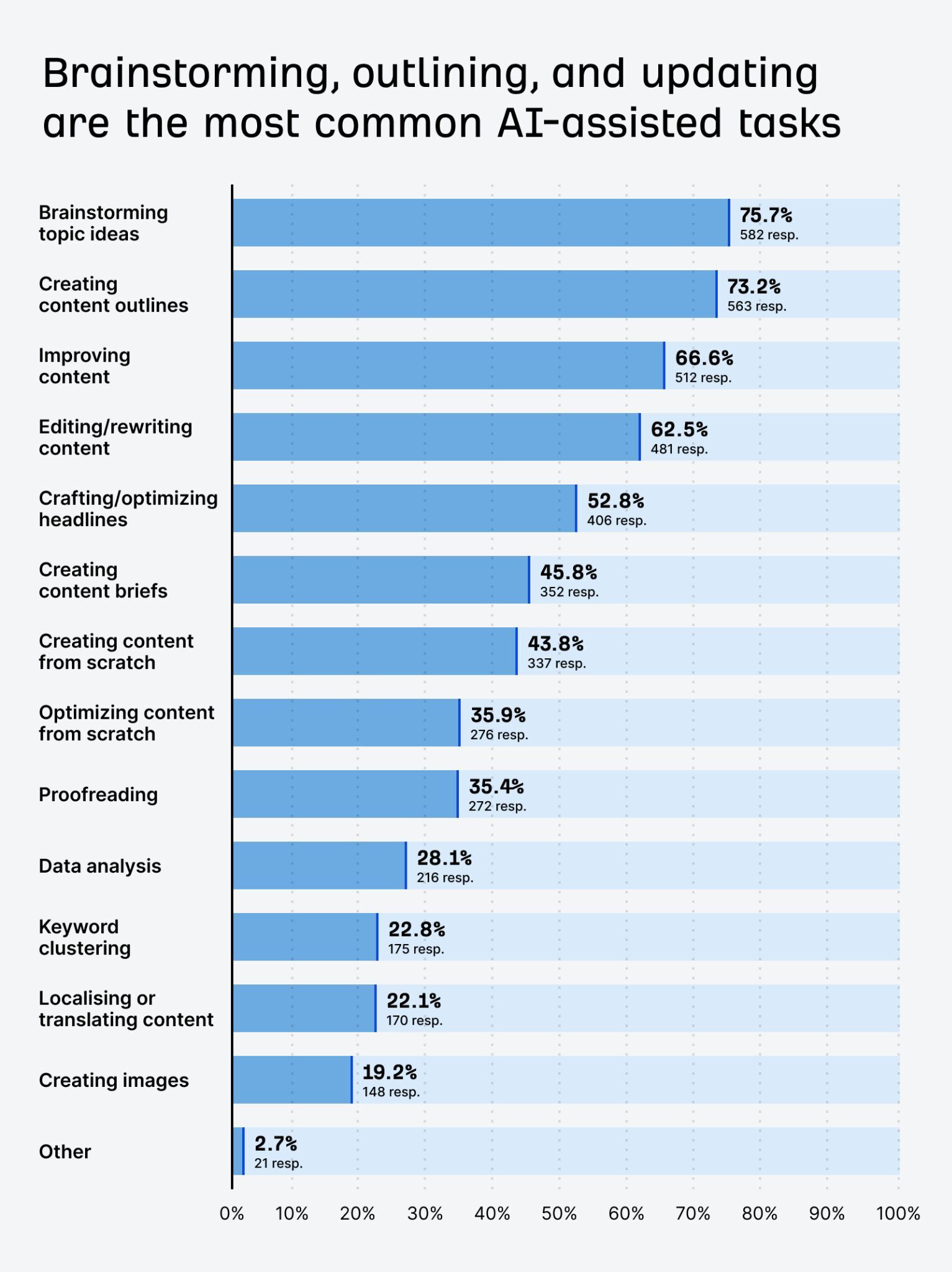

 Tekef
Tekef 








